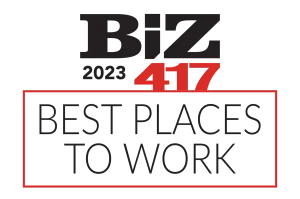
Is Commercial Real Estate A Ticking Time Bomb For The Ongoing Banking Crisis?

The banking crisis may just be getting started. To ensure depositors in Silicon Valley Bank (SVB) and Signature Bank (S.B.) do not lose their deposits and to finance a new lending program for banks that needed to borrow money to pay depositors, the Federal Reserve said $300 billion in emergency funding was made available. Almost half of that goes to holding companies for SVB and S.B. to pay their depositors. Credit Suisse required a shotgun merger with UBS to save it from collapse, following C.S. shares tumbling more than 75% over the last 12 months and about 110 billion Swiss francs being pulled in the fourth quarter of 2022. Economists fear that the worst is yet to come with the collapse of these banks, just the portend for future failures that would usher in the looming recession.
And on the immediate horizon, CRE may be the timebomb to set it off.
According to Neil Shearing, chief group economist at Capital Economics, in a note on Monday, smaller U.S. banks account for nearly 70% of outstanding property loans to the commercial real estate sector. The commercial real estate industry has struggled since the pandemic, with falling property valuations and reduced income due to lower occupancy rates due to the work-from-home trend. With CRE defaults already on the rise, this leaves these smaller regional banks exposed to significant losses.
In fact, with a staggering $270 billion in commercial mortgages held by banks set to expire this year, 2023 will be a reckoning for small banks should defaults continue to rise. As Genevieve Roch-Decter, a financial expert, posted on a Twitter thread, “issuances of commercial mortgage-backed securities are down year-over-year, according to the New York Times.”…” That signals that they are worried about the future prospects of commercial real estate and the liquidity of their current portfolios.”
She continued, “SVB’s collapse was triggered by a $1.8 billion loss from its bond portfolio. The losses from commercial real estate loans that go into default could be much, much higher.”
This exposure could spark a run on the banks from worried depositors. With deposits being pulled, banks would be pressured into raising capital, potentially calling in their loans, with much of it being CRE loans. This would lead to a downturn in the sector, depressing a key asset base of the bank, further bolstering fears of the bank’s solvency, and fueling further withdrawals leading to a vicious “doom loop,” as expressed by Shearing of Capital Economics.
Get In Touch With The Real Estate Investor News Team If You Want To Know More About Buying And Financing Investment Properties
Even Elon Musk, everyone’s favorite owner of Twitter, got in the action, calling attention to the $2.5 trillion in CRE debt that will mature in the next five years outlined by The Kobeissi Letter. Refinancing this debt will be a significant challenge in the current economic environment, with Feds maintaining high rates to combat inflation.
The increasingly likely CRE crash could be the straw that breaks the came’sl back, with dire consequences not just for the banking sector but the entire American economy, with the knock-on effects likely to be echoed worldwide.
The government’s attempts to strengthen the public’s confidence in the banks by safeguarding their deposits will be tested in the coming months as smaller banks feel the strain of their distressed commercial real estate portfolio and the waning trust of their depositors.
Should you be awaiting the coming CRE apocalypse to perhaps score a great deal amidst the turmoil, you may want to consider earmarking real estate financing options. Speak to our team at REI today to discover property funding opportunities with credible, affordable lenders.
Let Us Help You Boost Your Real Estate Projects!
Share your real estate investment projects with us and one of our team members will contact you with the right funding solution.


 Previous Post
Previous Post






